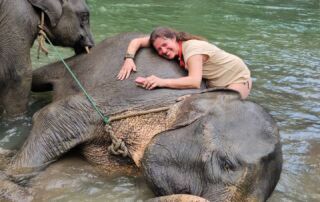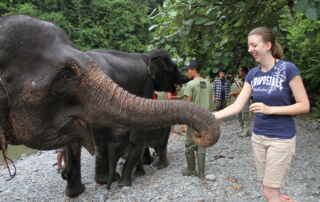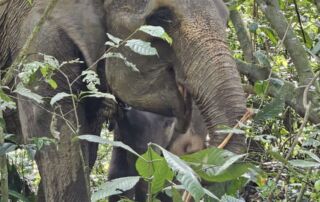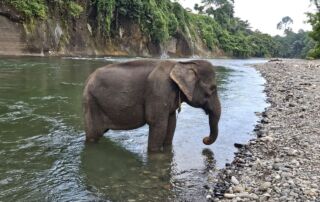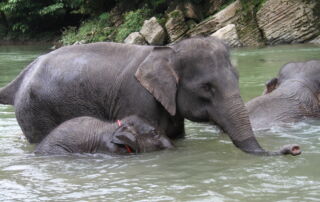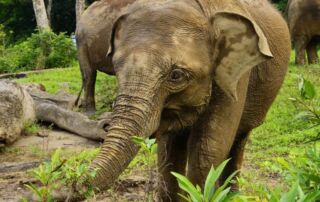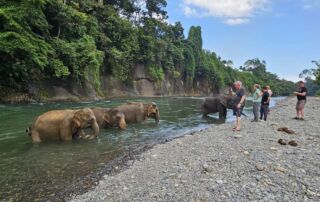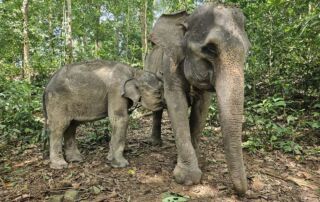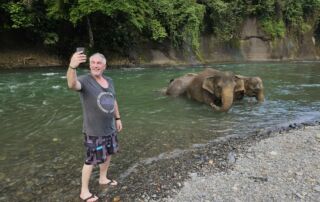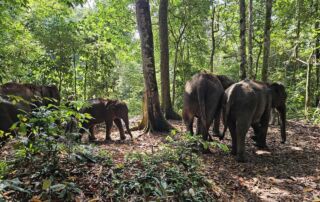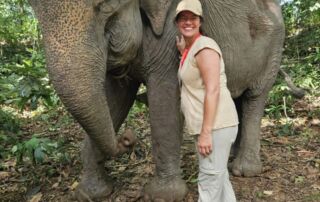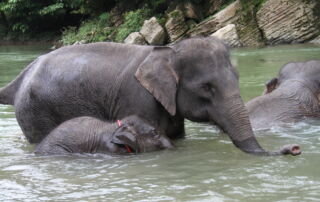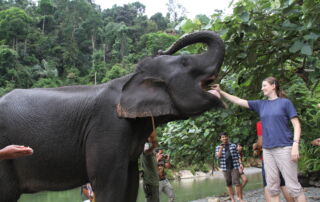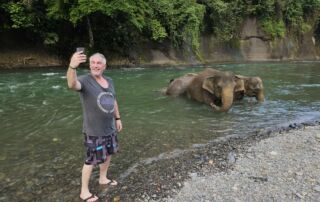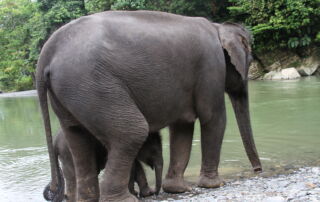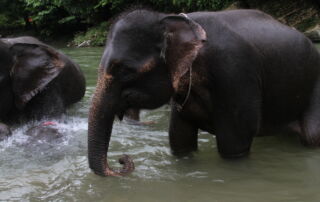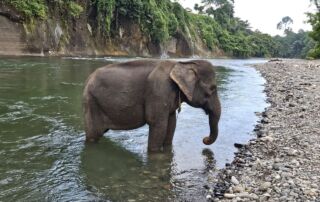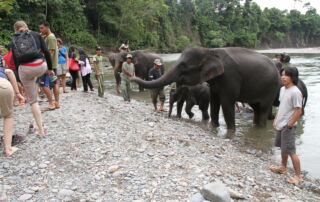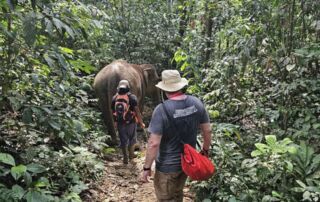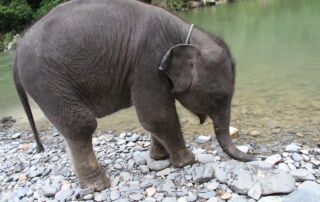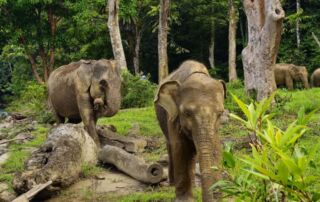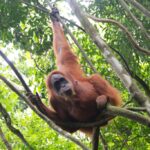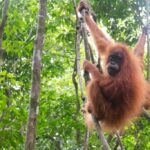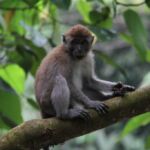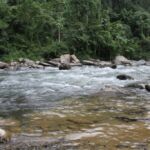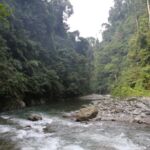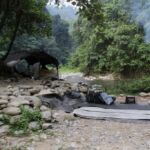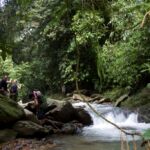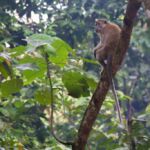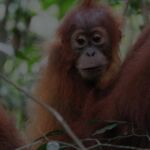Tangkahan and the Sumatran Elephant sanctuary at the border of the jungle
Tangkahan: Indonesia’s Hidden Jungle Sanctuary
Where is Tangkahan?
Tangkahan is a remote village and ecotourism destination nestled in Langkat Regency, North Sumatra, Indonesia. It lies on the outskirts of the Gunung Leuser National Park (GLNP), a UNESCO-listed tropical rainforest and one of the most biodiverse ecosystems on Earth. Tangkahan is about 80–90 kilometers from Medan, the capital of North Sumatra.
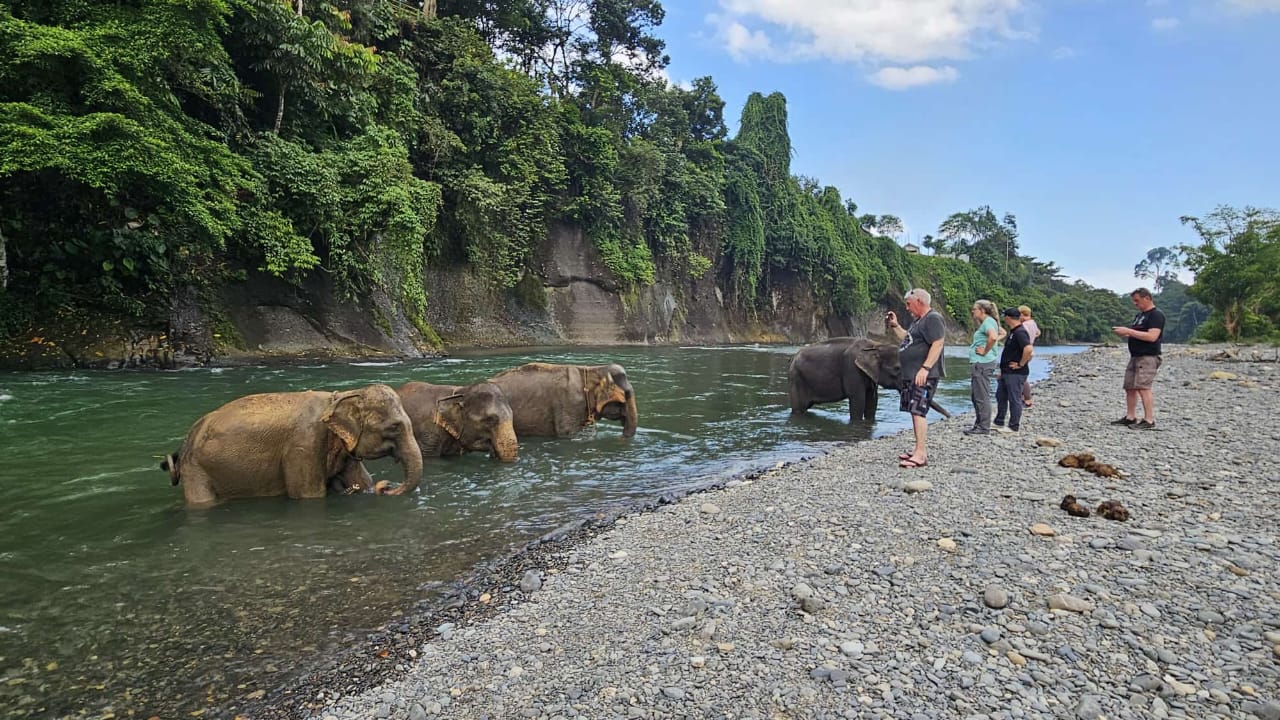
What Makes Tangkahan Special?
Tangkahan is often described as “The Hidden Paradise of Sumatra” for its unspoiled beauty, dense rainforest, and strong commitment to community-based ecotourism. It’s not as commercial as nearby Bukit Lawang, making it ideal for travelers seeking peaceful immersion in nature.
Here’s what sets it apart:
-
Off-the-beaten-path experience
-
Conservation-driven tourism
-
Presence of Sumatran elephants in the Conservation Response Unit (CRU)
-
Jungle adventures with a strong ethical foundation
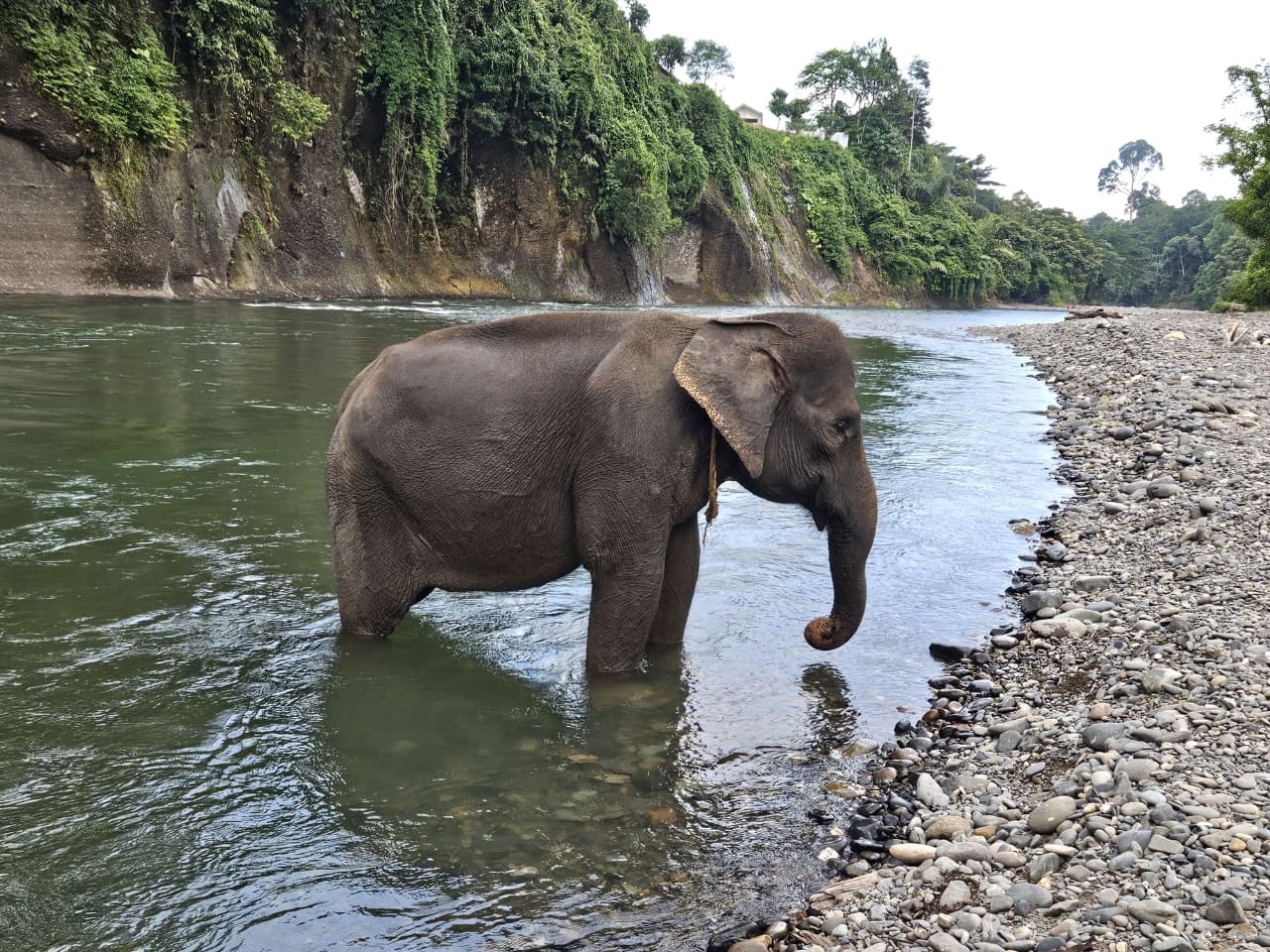
The Sumatran Elephant (Elephas maximus sumatranus)
Species Overview
The Sumatran elephant is one of the four recognized subspecies of the Asian elephant. Native only to the island of Sumatra, it plays a crucial role in the rainforest ecosystem as a “keystone species.”
-
Status: Critically Endangered (IUCN Red List)
-
Estimated wild population: Fewer than 2,800 individuals
-
Habitat: Tropical rainforests, grasslands, and lowland forests
-
Diet: Herbivorous (consumes up to 150 kg of plant matter daily)
-
Lifespan: 60–70 years in the wild
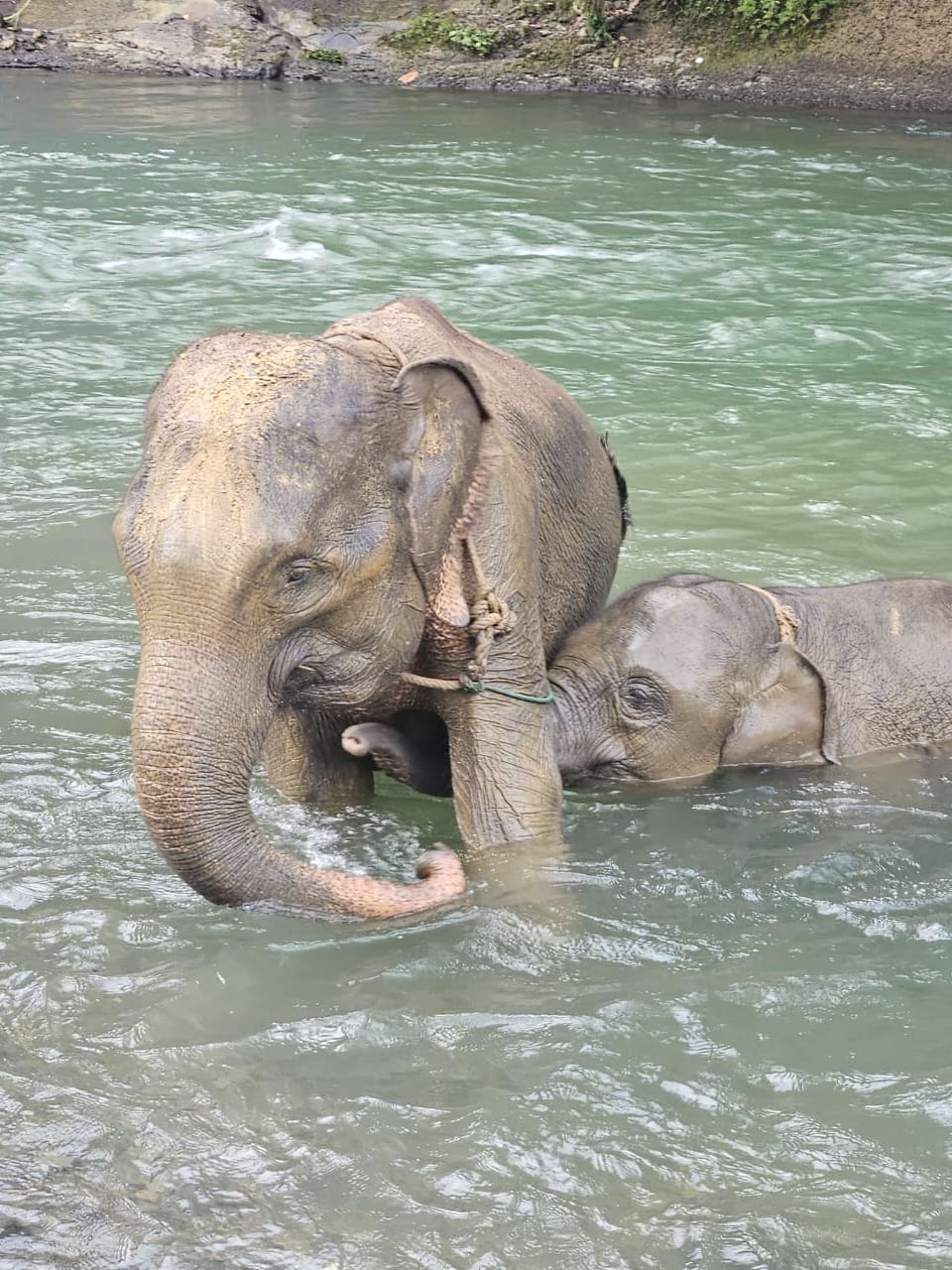
Threats to the Sumatran Elephant
Sumatran elephants face severe threats:
-
Deforestation for palm oil, logging, and agriculture
-
Human-wildlife conflict due to habitat loss
-
Poaching for ivory and retaliation killings
-
Fragmentation of habitat, which isolates herds
The shrinking forests of Sumatra have forced elephants to increasingly interact with human settlements, often resulting in conflict.
Taking part of bathing the elephant in the Buluh River, walking with the elephant into the jungle is one of the activities we could do close to the elephant habitat without exploiting them. It also help the local community financially.
Tangkahan & the Elephants: A Story of Transformation From Logging to Conservation
In the early 2000s, Tangkahan was at a tipping point—rife with illegal logging and unsustainable forest exploitation. But instead of continuing this path, the locals came together to form a community-led initiative to protect their land.
They partnered with the Leuser International Foundation and the Indonesian Ministry of Forestry, creating a Conservation Response Unit (CRU) with trained elephants and local mahouts (elephant handlers). These elephants, once part of government-run camps or taken from captivity, were repurposed as forest guardians and symbols of conservation.
What is the CRU?
The Conservation Response Unit in Tangkahan serves two major functions:
-
Forest Patrols: Elephants help rangers monitor forest areas to prevent illegal activities like logging and poaching.
-
Ecotourism Ambassadors: Tourists can observe, interact with, and learn about elephants ethically, providing income for local conservation.
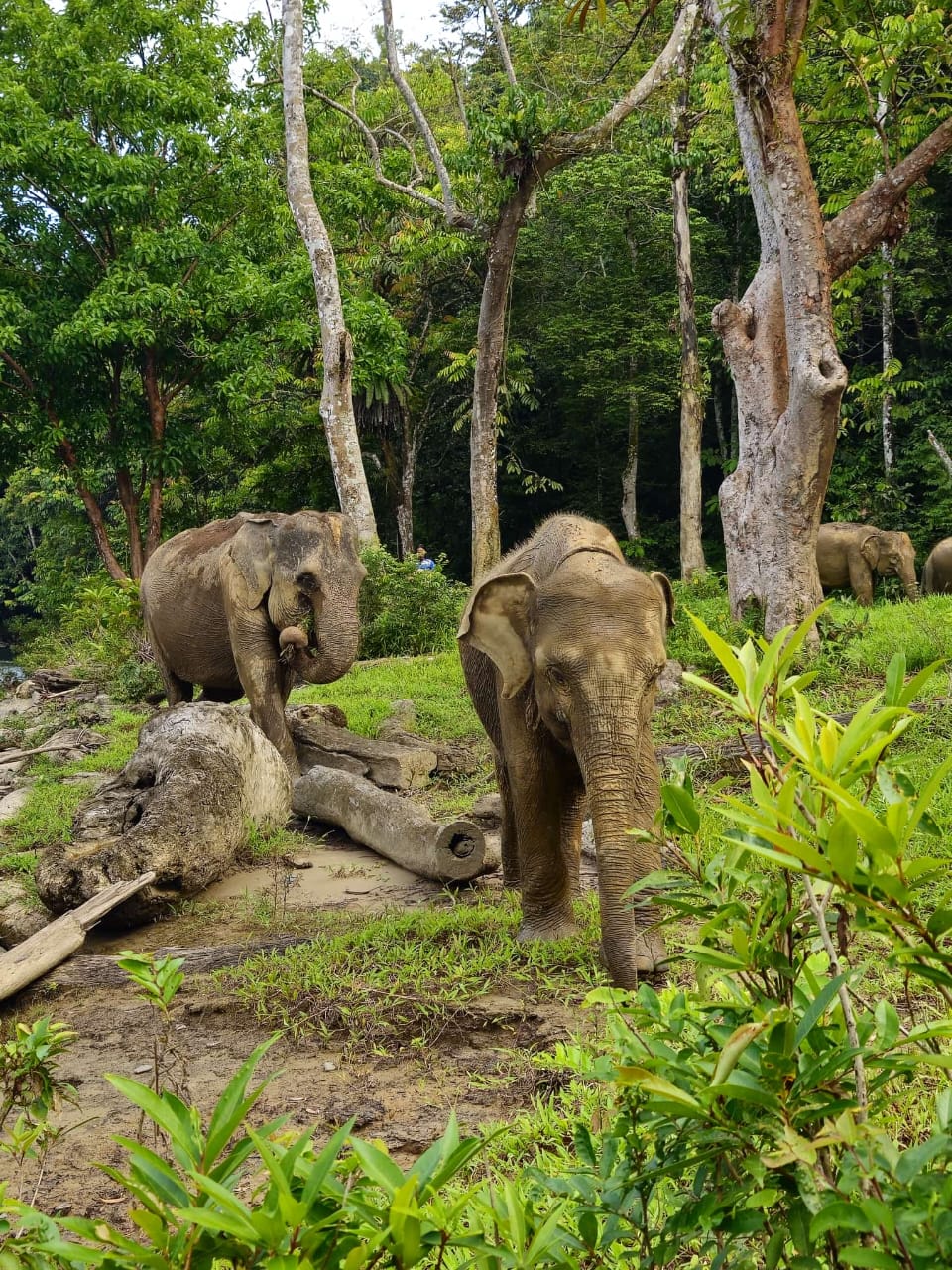
Sumatra Elephant in Tangkahan, NorthSumatra, Indonesia
Tangkahan Today: Eco-Activities & Wildlife Encounters
1. Bathing Elephants in the River
One of the most iconic experiences in Tangkahan is bathing the elephants in the Batang Serangan River. Under the supervision of mahouts, visitors can:
-
Scrub and wash elephants in the river
-
Learn about elephant behavior and biology
-
Observe the bond between elephants and handlers
Tangkahan has moved away from offering elephant rides in response to ethical tourism concerns. Focus is now on non-exploitative, educational experiences
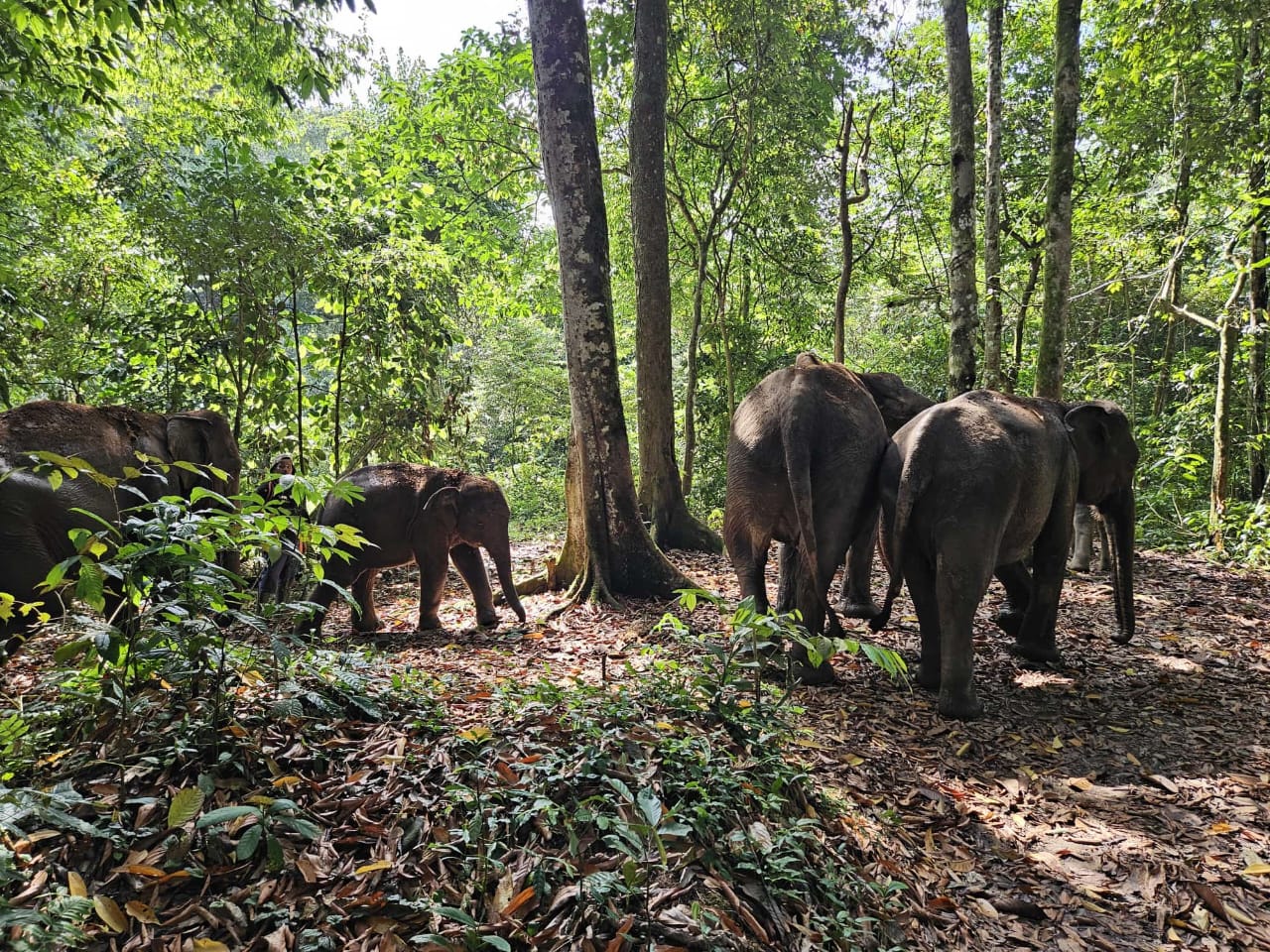
Sumatra Elephant Tangkahan NOrth Sumatra Indoensia
2. Jungle Trekking
Trek through the pristine rainforest of Gunung Leuser National Park. Guided by local experts, these treks offer:
-
Sightings of orangutans, gibbons, and hornbills
-
Exploration of hot springs, caves, and waterfalls
-
Insights into medicinal plants and jungle survival skills
3. River Tubing & Waterfalls
Float along jungle rivers surrounded by towering trees and chirping birds. You can:
- Tube down the Buluh River
- Swim in the river or under jungle waterfalls
- Relax in natural hot springs
4. Homestays & Cultural Experiences
Stay with locals in eco-lodges or wooden bungalows. Most accommodations are community-run, offering:
-
Traditional cooking experiences
-
Village farming or handicraft workshops
-
Immersive, slow-paced tourism with a low ecological footprint
Sumatra Elephant at Sumatra sanctuary Tangkahan, North Sumatra, Indonesia
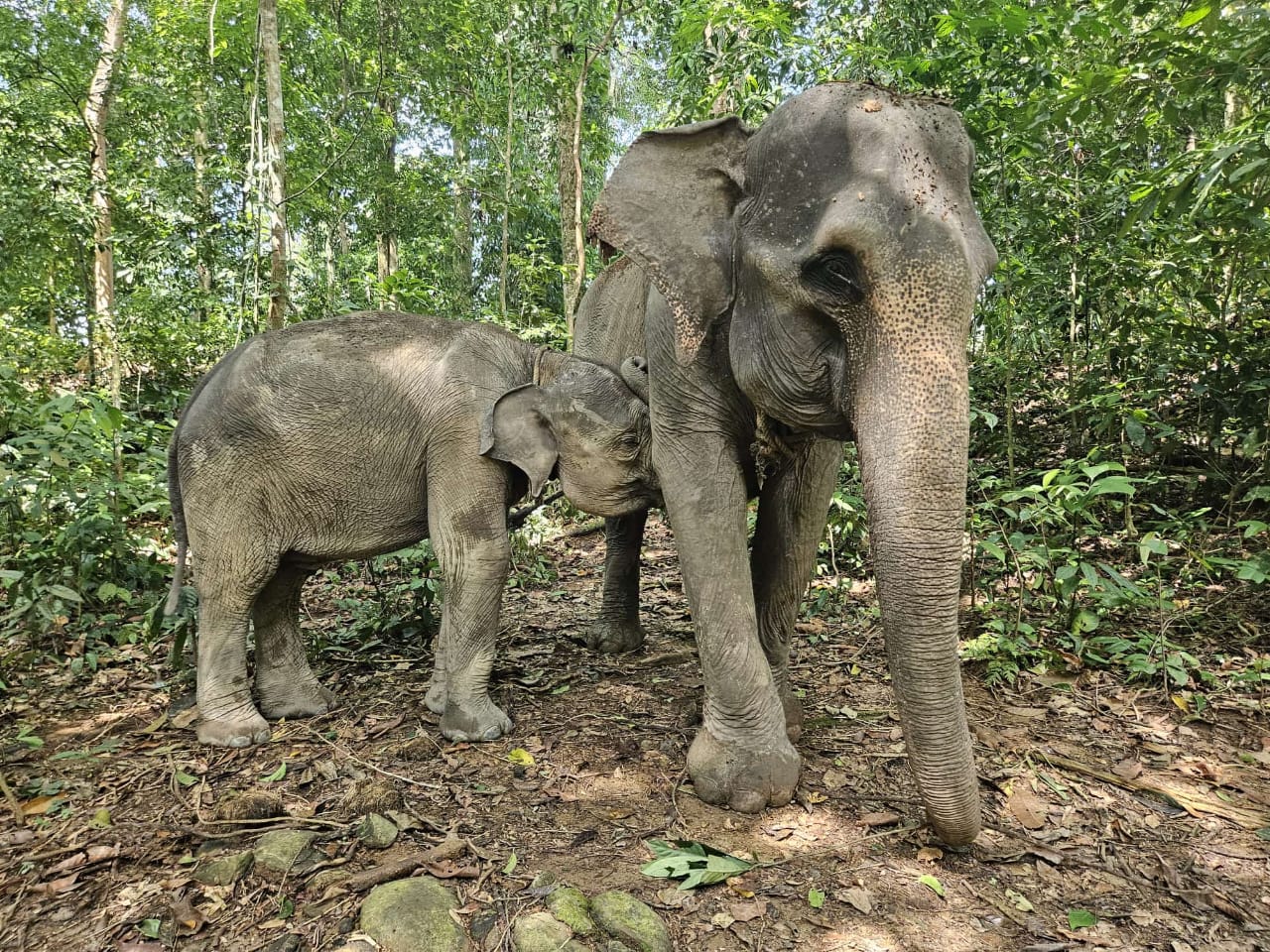
What kind of animal you might see?
-
Sumatran Orangutans (semi-wild and wild)
-
Thomas Leaf Monkeys
-
Long-tailed and Pig-tailed Macaques
-
Monitor Lizards
-
Gibbons
-
Hornbills and other exotic birds
-
Wild boars and forest insects
THINGS YOU NEED TO BRING
- Camera
- Walking Shoes
- Toilet Papers
- Large Bottlewater
- Mosquito Repellent
- Sunscreen
- Extra Dried change Clothes
- Swimming Clothing
Conclusion
Tangkahan and the Sumatran elephants symbolize the possibility of harmony between humans and nature. By choosing to travel responsibly and support local conservation, you contribute directly to:
-
The protection of endangered species
-
The empowerment of indigenous communities
-
The preservation of rain forests for future generations
How to Get to Tangkahan
- From Medan or AIRPORT: 5–6 hours by car
-
-
Private car is the most reliable transport from and to Medan or Airport
-
Public transport possible but requires multiple transfers and takes much longer. This option is not recommended
-
-
Access: Walking to the Guest house, and cross the river by Cable Bridge
Add extra to your travel arrangements will give you discounted prices with hassle free. Lets us organize it for you..
- Pick up and Transfer back to the Airport : 750.000 IDR | fit 4 px with luggage| one way
-
Village Day Tour : 350.000/ person | go around the village by tuk tuk to interact and observe the daily life of the locals. visit the Tofu and tempeh home production, palm leaf and bamboo weaving, try out some the durian fruit or young coconut, observing the palm sugar home production
-
Batcave and Landak River: 300.000| person. It is one hour walking distance from Bukit lawang. A dark cave with very beautiful shape of stalactite and stalagmite rocks. it takes 2 hours to complete the cave tour
- Sumatra Elephant Sanctuary: Get along and participate in one of the Sumatran Elephant activity at the border of the national park Tangkahan. Walk with the elephant to the river trough the Sumatra jungle, then bath the elephant in the river. This activity is 8.30 am and 3.30 pm. For the walking and bathing the elephant, the CRU will charge for 1.000.000 IDR, 600.000 IDR for only bathing the elephant. We will organized the transport to go and back to Bukit lawang village for 1.200.000, IDR. The car fit 4px max. Lunch will be provided
- Volcano Hike Mount Sibayak – BERASTAGI: 500.000 IDR| 2px Min. You need to be in Beratagi to do this Tour. Climb a magnificent active volcano in Berastagi Region- Mount Sibayak. Suitable almost for everyone. The summit is only 2200 meter. You could do it early in the morning for the sunrise or at anytime during the day. Volcano views with many Fume Holes all over the crater. Take a dip into the Thermal bath pond at the bottom of the mountain on your way down.
Sumatra Tour & Travel provide a pick up and transfer from various destination and places in the North Of Sumatra. Mainly from the Airport, Medan City, Tangkahan, Bukit Lawang, Berastagi and lake toba or Samosir Island. We have and can provide various type of cars and buses to suit your travel need and requirement. Combine it with the tour and accommodation plus the transport or transfer will be less hassles for you and very convenient other wise we provide the transport only is also possible. The prices are vary from pick place and to destination. please find it below about the prices

- Pick up and Transfer From Airport to Bukit Lawang : 750.000 IDR |One way| fit 4 px with luggage. This trnasfer will take about 3.5 hours to 4 hours. Going via tol road will slighly faster. Driving through the rugged and broken asphalt road in some areas. Mainly palm oil plantation view on the rural part.
-
Pick up and transfer From Airport to Tangkahan : 750.000 IDR| One way | fit 4px with luggage. The trip will take about 4 hours through the medan city, binjai city then the rural and palm oil plantation. Some road are bumpy and rugged.
-
Transfer from Bukit Lawang to Tangkahan : 750.000 IDR | One way | Fit 4px. Driving through the palm oil plantation and some rural villages. Expect the rugged road.
- Transfer from Airport to Berastagi : 800.000 IDR| One way | Fit 4 people | Driving through the medan city to the Mountainous direction. Very windy road with mountain and jungle view in some area. Expect the traffic jam during the weekend. The trip will trake about 4 hours depending on the traffics condition
- Transfer from Bukit Lawang to Berastagi : 900.000 IDR| One way | Fit 4 people | Driving through the rural area under the palm oil plantation, rural area with villages. Very windy road with mountain and jungle view in some area. Take a rest at the rest area under the mount sinabung volcano and try some local coffee
- Transfer from The Airport to Parapat : 1.000.000 IDR|One way| Fit 4 people. Driving via toll road. Very scenic road and much faster traveling. This trip will takes about 3 .5 hours. Mainly going through the toll road. From P.SIANTAR city will go on the national road. Slower drive. Make sure that you have enough time to catch the last boat that leaving from the harbor to the Samosir island. The last boat will leave by 5.30. There is also a ferry option for this trip, WE NEED TO BOOK the ferry in advance. also you will need to pay for to go and return ferry ticket which will cost about 500.000 IDR
- Transfer from Bukit Lawang to Parapat : 1.200.000 IDR| One way | Fit 4 people | Driving through the plantation, villages and rural area through the mountainous road and under the mount sinabung volcano. This trip will takes about 7-8 hours with multiples stop at the outlook area like the volcano mountain, waterfall and some other interesting places. Alternatively we could also take the TOLL road via highway. This option will takes about 5-6 hours. There will be some Toll road charges


